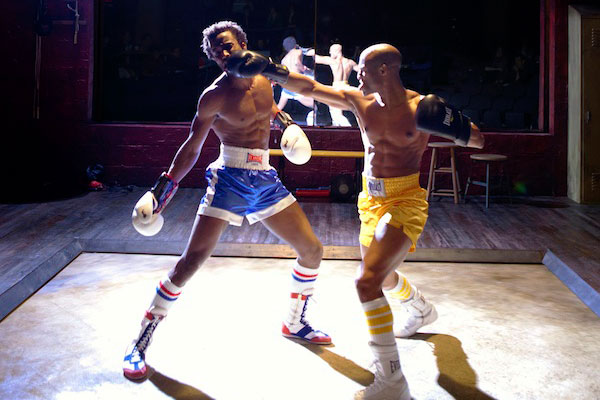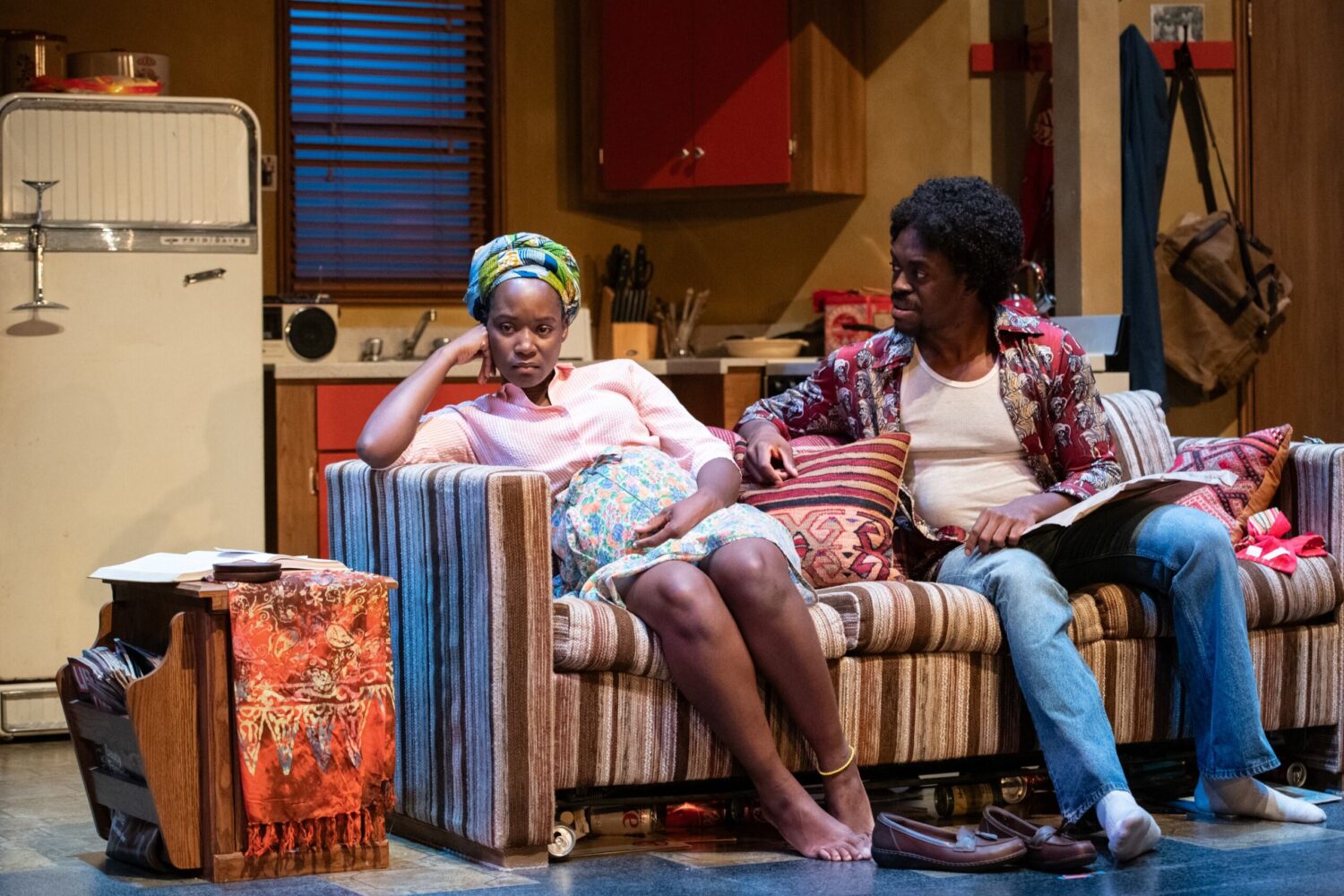Sheldon Best and Emmanuel Brown in Sucker Punch. Photograph by Scott Suchman.
![]()
There’s something uniquely satisfying in the sound of a good, solid punch. Its various causes and dramatic reverberations have inspired writers and directors for decades, but when it comes right down to it, the swiftest hit to our emotions comes in the form of that powerful “thwack.” Luckily for theatergoers, this truth isn’t lost on sound designer Lindsay Jones and director Leah C. Gardiner, who deliver some masterfully crafted auditory and emotional jabs in Roy Williams’s Sucker Punch, currently playing at Studio Theatre. And it’s not just through amplifying the boxing tale’s many blows that this show’s sound flexes its muscle: A whirring jump rope, the roar of an adoring crowd, and the wailing sirens of a city in turmoil all convey the same intense reality the rest of the production works to create.
Set amid the race riots of 1980s London, Williams’s story of two young black men literally fighting their way through personal and political challenges in and out of the ring won the Writers Guild of Great Britain’s award for Best Play in 2011. This run marks a promising American debut for the play and the playwright, with imaginative staging and raw acting that both take advantage of the Studio’s intimate space. In a dingy neighborhood boxing gym, friends Leon (Sheldon Best) and Troy (Emmanuel Brown) go from cleaning the toilets to entering the ring in an environment where racial suspicion is high and pressure to win from struggling trainer Charlie (Sean Gormley) is higher. Winning comes with some serious costs—self-respect and friendship, to name just two.
Rarely leaving the stage throughout the play’s intermission-free hour and 40 minutes, Best delivers the heavyweight performance here, both emotionally and physically (with a glistening layer of sweat to prove it). Leon’s evolution from obedient janitor to entitled champion builds in intense mid-bout monologues laced with just the right combination of youthful cockiness and fear. An interracial romantic relationship with Charlie’s daughter, Becky (Dana Levanovsky), like much of the political backstory in the show, is never developed to the same extent, but adds another layer of tense texture to the production. Brown’s hot-headed Troy has his own fair share of razor-edged scenes, particularly those later in the show, and as Charlie, Gormley embodies the down-on-his-luck trainer with a steely demeanor that lets just enough paternal softness shine through.
Supporting actors hardly blend into the background: Ray (Lance Coadie Williams), a cutthroat manager the other characters describe earlier in the show, is as intimidating a presence as he’s built up to be when he finally arrives on stage. Played with icy control by the velvet-voiced Williams (who should really consider challenging the Allstate Insurance spokesman to a talk-off), Ray commands his few appearances just as forcefully as he commands the scared young fighters he’s promoting.
Sporting tales, filled with underdogs and heart-pounding intensity, serve as an endlessly entertaining medium for storytelling, and it’s hard to imagine a genre that better embodies those qualities than boxing. Williams and Gardiner rightly position the fight sequences as the gritty heart of this production, accomplishing just as much, if not more, with a choreographed slow-motion knockout as with some of Leon’s electric soliloquies (Rick Sordelet served as fight choreographer). For all its poignant lighting and sound choices, the realism of the fight scenes—Best and Brown started training at a New York boxing gym in January for the roles—as the actors’s fists appear to make contact is hard to forget. Through its powerful simplicity, this production leaves a mark.
Sucker Punch is playing at Studio Theatre through April 8. The show contains adult language and is not appropriate for all audiences. Tickets ($35 to $60) are available through Studio’s website.
















